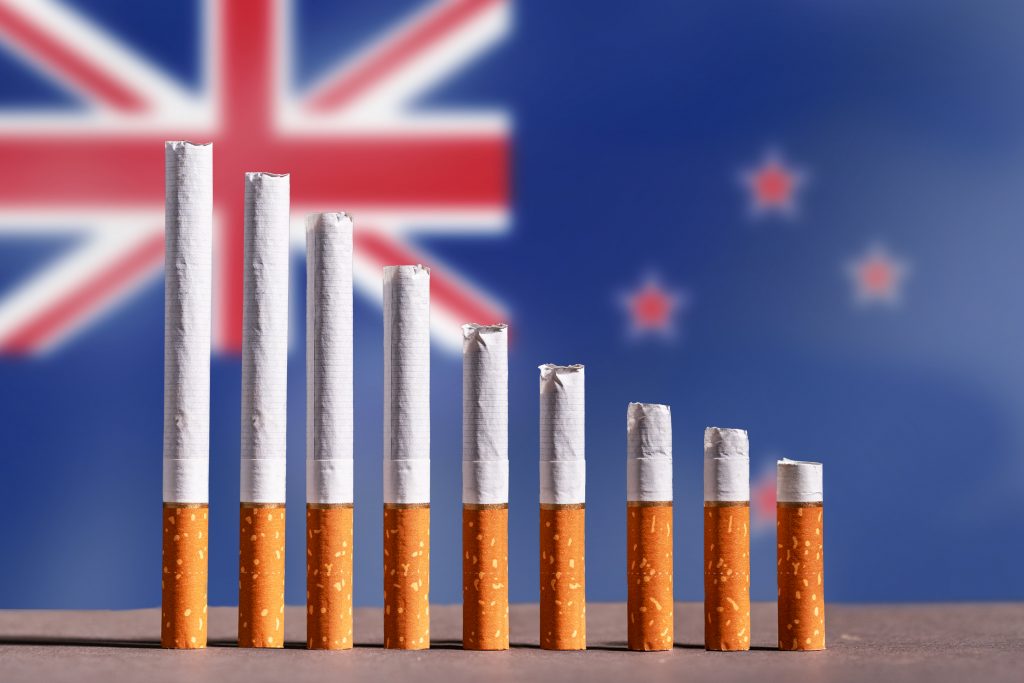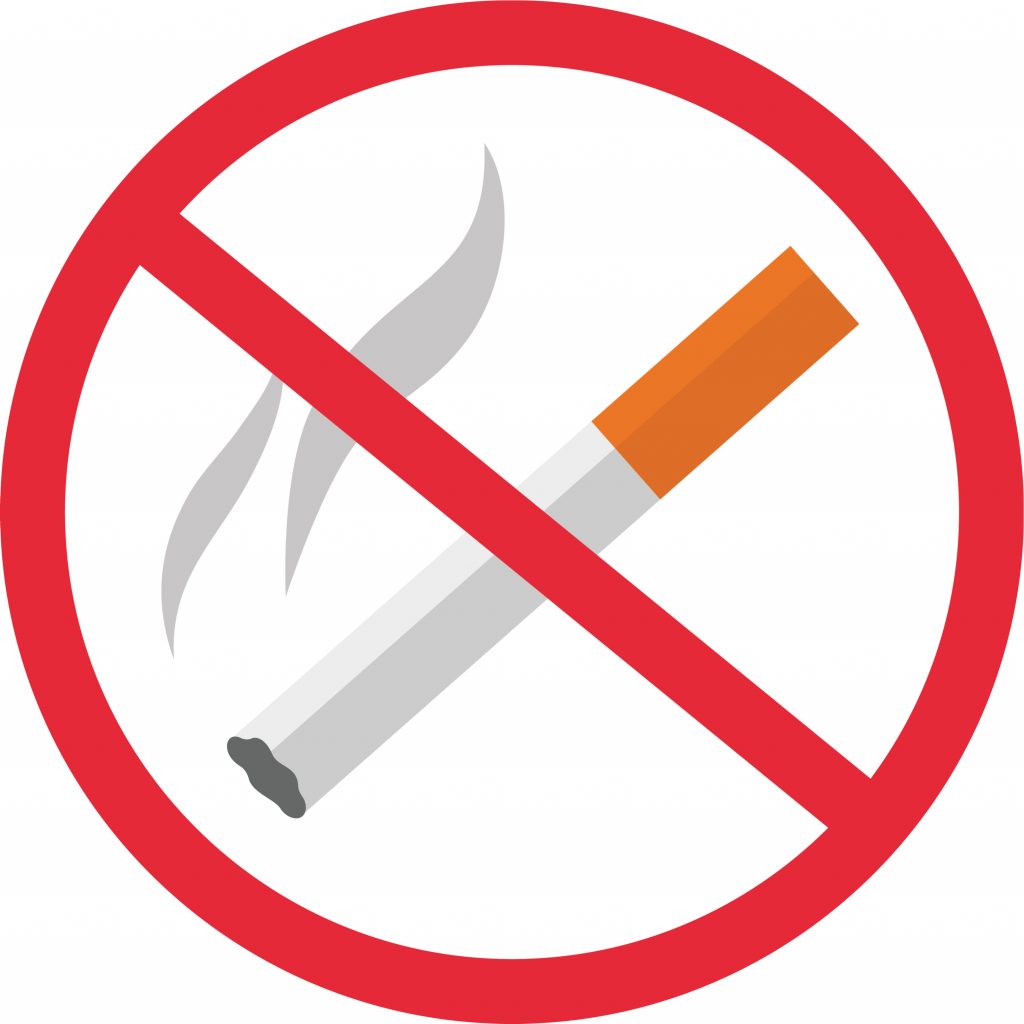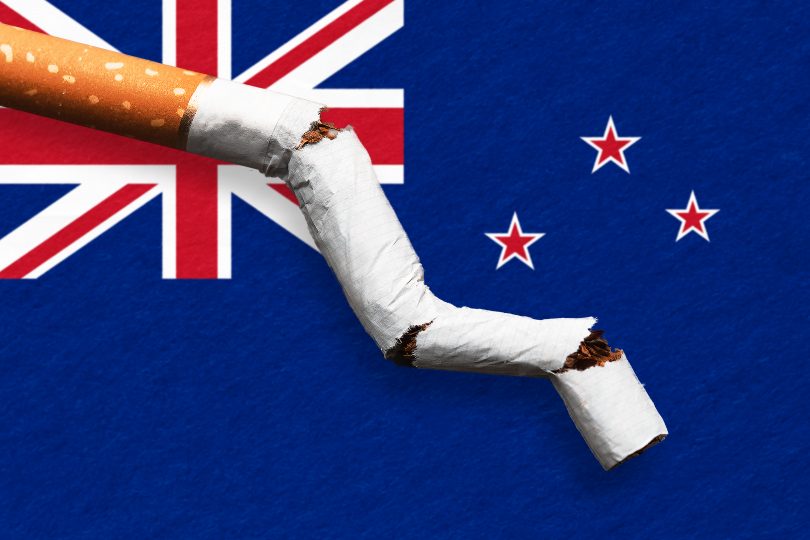Last Year New Zealand said no to recreational cannabis in a country-wide referendum. Now, the government is attempting to go one step further. New Zealand has become one of the first countries to introduce legislation that gives a hard ‘no’ to cigarettes, instituting a ban, and criminalizing their sale.
Tis the season to buy a whole bunch of stuff for your loved ones, and hope they put as much thought into your gift too. If you’ve got cannabis aficionados on your list this year, you can sure make them happy with tons of new cannabis offerings. Like delta-8 THC, THCV, HHC, and THC-O-A. Whether they’re vapers, or edible lovers, oil users, or flower smokers, we’ve got tons of great deals for the holiday season, so check ’em out, and stock up today!
What the #%@$ is New Zealand trying to do?
If you’re scratching your head and asking that same question, it’s a logical one. Cigarettes are one of the most widely used products/drugs in the world, making the idea of banning them a big move. But that’s what’s on the docket to happen, albeit with a plan to implement this ban in steps. Yes, it’s true, New Zealand just gave a very hard ‘no’ to smoking cigarettes.
On Thursday, December 9th, New Zealand’s Ministry of Health announced possible and sweeping regulation in the fight against smoking. The country isn’t trying to eliminate the ability for smoking altogether, at least not yet. But it is attempting to set the stage for this by announcing what is essentially a first step. The government of New Zealand has proposed a very hard ‘no’ on smoking cigarettes by making the sale of cigarettes and other tobacco products, illegal for those born after 2008. Should the proposed law go through (which headlines be darned, it has not yet!) then this is expected to start next year.
According to Health Minister Dr. Ayesha Verall, “We want to make sure young people never start smoking.”
This reform is very much appreciated by health care professionals as a way to reduce overall cigarette smoking, and as a way to limit the amount of tobacco in cigarettes. Along with the idea that New Zealand will introduce its hard ‘no’ on smoking cigarettes by way of a ban for kids, it also proposed other new tobacco controls.

These include restricting the amount of nicotine in cigarettes, as well as applying restrictions in terms of where they can be sold. They would no longer be found on supermarket shelves or in corner stores. While somewhere in the neighborhood of 8,000 retailers exist now, the government intends to cut this down to closer to 500.
What’s the climate for cigarette smoking in New Zealand?
According to New Zealand’s Health Ministry, about 13% of the country currently smokes. The indigenous populations, the Maori and the Pacifika, have much higher rates within their population, and have higher numbers of health-related issues as a result. The Ministry says that smoking causes one out of four cancer cases in the country, and is the leading cause of preventative death within the country, which houses five million people.
New Zealand’s immediate goal is to reduce its country-wide smoking rate by 5% by the year 2025. The overall goal, of course, is to eliminate it altogether. New Zealand does seem to understand this is tactically difficult to do all at once, and set up this system to eliminate it in stages, first by banning it from younger kids so they never start the habit. Basically, New Zealand is looking to stop smoking by generation.
In a way, this is strange timing, as New Zealand smoking rates have already been declining. In 2018, the daily smoke rate was 11.6%, which is a drop from 10 years prior when it was up at 18%. The bigger issue comes from the indigenous populations like the Māori and Pacifika, which have higher smoking rates of 29% and 18% respectively. Dr. Verrall stated about this: “If nothing changes, it would be decades till Māori smoking rates fall below 5%.”
Personally, I find this to be a strange complaint. He’s actually saying the smoking rate is falling, and is expected to fall more, even in poorer communities where the rate is higher. In fact, what he’s saying – that the expected decrease for the Māori in a few decades could bring the rate down to under 5%, is actually incredible. It’s like they’re already on the right trajectory, and yet looking to institute these weird laws anyway. Laws that will light up the black market, and encourage current smokers to pay more money for the same thing.
Will New Zealand really be able to make a hard ‘no’ on smoking cigarettes?
This is hard to say. Yeah, smoking is bad. We don’t even need to speak about it in uncertain terms, that’s how well understood the subject is. Breathing in smoke causes cancer, and cigarettes are the primary way people unnecessarily breathe it in. So, drawing a line in the sand and saying ‘I want better for my people’ doesn’t sound so bad. Sure, that’s great, and it does make a lot of sense.

But there are some issues here as well, and I say this as someone who wholeheartedly promotes the elimination of cigarettes. One of the bigger concerns – which is highly valid in this day and age, is that this will simply bolster a tobacco black market rather than keeping people away from tobacco. If cannabis prohibition and alcohol prohibition taught us anything, its that black markets love it when the government outlaws something that’s widely used, since it rarely means people will actually stop using it.
What was New Zealand’s way of trying to account for this issue? To announce that border controls will need to be bolstered by customs, and will likely require more resources. Seems kind of weak considering the previous prohibitions mentioned, especially since tobacco is a plant, and plants can easily be grown within the country, whether legally or not.
The more realistic side is noted by chairman of the Dairy and Business Owners Group – a lobbyist for local convenience stores, Sunny Kaushal, who stated, “This is all 100% theory and 0% substance… There’s going to be a crime wave. Gangs and criminals will fill the gap”.
Another main issue has to do with personal sovereignty. The idea that people should be able to choose how to live their lives, however dangerously. How well people will accept being told they can’t have this, is questionable at best, and will likely only empower the black market, since people will want to do, what they want to do. People do dangerous stuff all the time, like climbing Mount Everest, or bungee jumping off cliffs. I’ve never heard of a law against those things.
Plus, as long as something like alcohol exists, and is widely sold, coming down on something like cigarettes for their negative health benefits, will always be lacking, and nonsensical. Sure, cigarettes are bad, but if New Zealand really wanted to save its people from substances which cause the most damage, alcohol would be first on the list, or banned in tandem. And I certainly haven’t seen anything about that.
Further to that, the idea of limiting the amount of nicotine in cigarettes, as a run-up to banning them, is less likely to ween anyone off in the process, but more likely to encourage smokers to spend more money to get the same effect they’re already used to. This means more money to tobacco companies, and more money out-of-pocket for people already having a hard time getting by. Doesn’t sound very useful to the people of New Zealand.
How necessary is this?
By all accounts the smoking rate in New Zealand is already falling, and at a decent rate, making such a hard ‘no’ on smoking cigarettes a little confusing. Why institute unpopular laws when they’re not necessary? Especially when such laws are looking to so obviously promote a tobacco black market, and force people to pay out more money on weaker products.

Laws like this are generally used to curb problems that are out of control. If deaths were increasing, or smoking rates were going up, that would be one thing. If a ridiculous number of kids had recently started smoking, or New Zealand was one of the smokiest countries, this might be understandable. But the country is already getting it under control, so why? Is it a hit on tobacco companies, or a backhanded way to get people to pay more? And if so, why?
Truth is, younger generations have been adopting vaping at break-neck speeds. In a survey of 19,000 high school kids in New Zealand, nearly 20% were vaping every day, and often with high amounts of nicotine. This actually brings up the rate of nicotine consumption. In 2018, for example, only 3% of kids aged 15-17 smoked, and 10 years prior to this, it was at 13%. What these statistics imply, is that vaping has helped reduce smoking cigarettes, but it has widened the door of exposure to kids who might not have adopted nicotine use otherwise. If nicotine was really the issue, New Zealand would be representative of a very big problem.
Conclusion
Though bad writers like to state that this is already a done deal, it most certainly is not. In fact, there’s so much pushback that it might not go through at all, or not in the form its in now. Add onto that the lack of a need for this bill, and it becomes, well, silly. The smoking rate is already dropping in the country, making the New Zealand proposed hard ‘no’ on smoking cigarettes, one of the strangest, and most unnecessary laws I’ve seen lately. And that says a lot.
Hello and welcome to the site! Thanks for stopping by CBDtesters.co, the #1 internet location for the best cannabis and psychedelics-related news, offering up the most interesting stories of today. Read-thru daily to stay abreast of the ever-changing world of legal drugs and industrial hemp, and sign up for the The THC Weekly Newsletter, so you never miss a single thing.
Disclaimer: Hi, I’m a researcher and writer. I’m not a doctor, lawyer, or businessperson. All information in my articles is sourced and referenced, and all opinions stated are mine. I am not giving anyone advise, and though I am more than happy to discuss topics, should someone have a further question or concern, they should seek guidance from a relevant professional.









